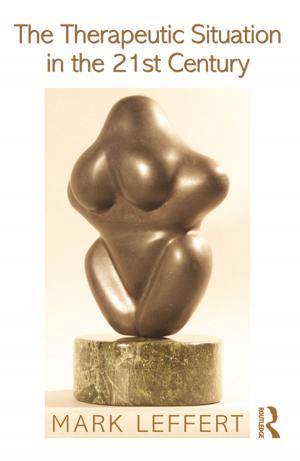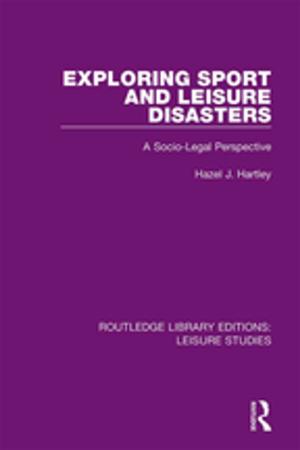Jane Austen & Charles Darwin
Naturalists and Novelists
Fiction & Literature, Literary Theory & Criticism| Author: | Peter W. Graham | ISBN: | 9781317111481 |
| Publisher: | Taylor and Francis | Publication: | May 6, 2016 |
| Imprint: | Routledge | Language: | English |
| Author: | Peter W. Graham |
| ISBN: | 9781317111481 |
| Publisher: | Taylor and Francis |
| Publication: | May 6, 2016 |
| Imprint: | Routledge |
| Language: | English |
Are Jane Austen and Charles Darwin the two great English empiricists of the nineteenth century? Peter W. Graham poses this question as he brings these two icons of nineteenth-century British culture into intellectual conversation in his provocative new book. Graham shows that while the one is generally termed a naturalist (Darwin's preferred term for himself) and the other a novelist, these characterizations are at least partially interchangeable, as each author possessed skills that would serve well in either arena. Both Austen and Darwin are naturalists who look with a sharp, cold eye at the concrete particulars of the world around them. Both are in certain senses novelists who weave densely particularized and convincingly grounded narratives that convey their personal observations and perceptions to wide readerships. When taken seriously, the words and works of Austen and Darwin encourage their readers to look closely at the social and natural worlds around them and form opinions based on individual judgment rather than on transmitted opinion. Graham's four interlocked essays begin by situating Austen and Darwin in the English empirical tradition and focusing on the uncanny similarities in the two writers' respective circumstances and preoccupations. Both Austen and Darwin were fascinated by sibling relations. Both were acute observers and analysts of courtship rituals. Both understood constant change as the way of the world, whether the microcosm under consideration is geological, biological, social, or literary. Both grasped the importance of scale in making observations. Both discerned the connection between minute, particular causes and vast, general effects. Employing the trenchant analytical talents associated with his subjects and informed by a wealth of historical and biographical detail and the best of recent work by historians of science, Graham has given us a new entree into Austen's and Darwin's writings.
Are Jane Austen and Charles Darwin the two great English empiricists of the nineteenth century? Peter W. Graham poses this question as he brings these two icons of nineteenth-century British culture into intellectual conversation in his provocative new book. Graham shows that while the one is generally termed a naturalist (Darwin's preferred term for himself) and the other a novelist, these characterizations are at least partially interchangeable, as each author possessed skills that would serve well in either arena. Both Austen and Darwin are naturalists who look with a sharp, cold eye at the concrete particulars of the world around them. Both are in certain senses novelists who weave densely particularized and convincingly grounded narratives that convey their personal observations and perceptions to wide readerships. When taken seriously, the words and works of Austen and Darwin encourage their readers to look closely at the social and natural worlds around them and form opinions based on individual judgment rather than on transmitted opinion. Graham's four interlocked essays begin by situating Austen and Darwin in the English empirical tradition and focusing on the uncanny similarities in the two writers' respective circumstances and preoccupations. Both Austen and Darwin were fascinated by sibling relations. Both were acute observers and analysts of courtship rituals. Both understood constant change as the way of the world, whether the microcosm under consideration is geological, biological, social, or literary. Both grasped the importance of scale in making observations. Both discerned the connection between minute, particular causes and vast, general effects. Employing the trenchant analytical talents associated with his subjects and informed by a wealth of historical and biographical detail and the best of recent work by historians of science, Graham has given us a new entree into Austen's and Darwin's writings.















